What Is a Hospital SaaS Platform, and Why Does It Matter?
Not all heroes wear lab coats—some wear hoodies and write code. Dive into what Hospital SaaS platforms are, and why African health systems need them more than motivational speeches. From patient records to billing, learn how the cloud is transforming care.

"The doctor may know the cure, but without the tools, even a lion cannot hunt." – Igbo proverb remix
Let’s start with the obvious: Many hospitals across Africa are still running on paper, prayer, and Post-it notes. The matron writes vitals in a notebook from 1997, the lab guy stores blood results in a metal cabinet, and the receptionist uses Excel... on a desktop with a cracked screen. If you’re lucky, they might print your prescription on a typewriter.
Enter: Hospital SaaS platforms—a.k.a. the quiet, cloud-based revolution your hospital didn’t know it needed.
1. SaaS? In My Hospital? Yes, Please.
SaaS stands for Software as a Service. It's not sorcery. It simply means you use hospital software via the internet, not by installing dusty CDs or relying on that one IT guy who only works on Thursdays.
A Hospital SaaS platform is an online system that runs your hospital’s operations: appointments, billing, lab reports, inventory, HR, electronic medical records (EMRs)—all in one neat cloud-based dashboard.
Instead of hiring ten people to do the job slowly and manually, you let software do the heavy lifting—fast, securely, and without getting malaria.
2. Why It Matters (Like, Seriously)
Here’s why your hospital or clinic should stop being allergic to SaaS:
a) Say Goodbye to Lost Files
No more "Eh! The folder is missing!" or "Please come back tomorrow, the nurse travelled with the key." SaaS platforms store patient data securely in the cloud, with backup and access control.
b) Access from Anywhere
Running a rural clinic in Northern Nigeria? Doing mobile health in Machakos? As long as there’s internet (or even just a hotspot), you can access your data on the go.
Look at Helium Health (Nigeria): their Hospital Management Information System (HMIS) has digitised over 500 hospitals across West Africa (Helium Health, 2024). Not fiction. Facts.
c) Accountability Like Never Before
Every time a nurse logs vitals, a doctor prescribes meds, or someone issues a bill—it’s tracked. This means no more magical inventory disappearances or mystery prescriptions.
d) Patient Experience = Top Tier
Patients don’t have time for long queues, lost lab results, or prescription mix-ups. A good SaaS platform improves:
-
Appointment scheduling
-
SMS reminders
-
Lab result access
-
Digital prescriptions
Basically, less stress for Aunty Beatrice.
3. Features You Didn’t Know You Needed
Most African startups are building modular SaaS platforms, meaning clinics can choose what fits their size and needs. Some hot features include:
-
AI-powered diagnostics (like those by Baobab Circle, Kenya)
-
Mobile-first dashboards
-
Telemedicine integration
-
E-prescriptions
-
Inventory auto-alerts when paracetamol stock is low
It’s like turning your health facility into a digital Ferrari—even if your budget says tuk-tuk.
4. Who’s Already Doing It (Well)?
Let’s name-drop responsibly:
-
Helium Health (Nigeria): Full-stack EMR and SaaS for hospitals. https://www.heliumhealth.com
-
Ilara Health (Kenya): Partnering clinics with affordable diagnostic tools + software. https://www.ilarahealth.com
-
Rocket Health (Uganda): Telehealth, e-pharmacy, and records in the cloud. https://rockethealth.africa
-
CareAI by HealthX (South Africa): Smart hospital and clinic solutions with predictive analytics. https://www.healthx.africa
These folks are proof that the future of African healthcare lives in the cloud, not in a filing cabinet.
5. But What About the Challenges?
Of course, it's not all smooth:
-
Poor internet in rural areas: Solution? Offline syncing, low-data versions.
-
Digital illiteracy: Train staff with incentives and relatable guides. Don’t expect the matron to learn JavaScript—just show her where to click.
-
Resistance to change: Humans fear change more than injections. Approach with empathy, workshops, and maybe jollof.
6. The Bottom Line
You can’t build 21st-century healthcare with 20th-century tools. Hospital SaaS platforms offer African health systems speed, safety, scalability, and sanity.
And remember: You don't need to build it yourself. Just plug in, and play.
So next time someone asks why your hospital has no digital records, you can tell them:
"We’ve moved to the cloud, my friend. We’re allergic to paper now."
References
Helium Health. (2024). Powering healthcare across Africa. https://www.heliumhealth.com
Ilara Health. (2024). Diagnostics for primary care in Africa. https://www.ilarahealth.com
Rocket Health. (2024). Telemedicine and digital health in Uganda. https://rockethealth.africa
HealthX Africa. (2024). AI-powered healthcare delivery. https://www.healthx.africa
What's Your Reaction?
 Like
0
Like
0
 Dislike
0
Dislike
0
 Love
0
Love
0
 Funny
0
Funny
0
 Angry
0
Angry
0
 Sad
0
Sad
0
 Wow
0
Wow
0














































































